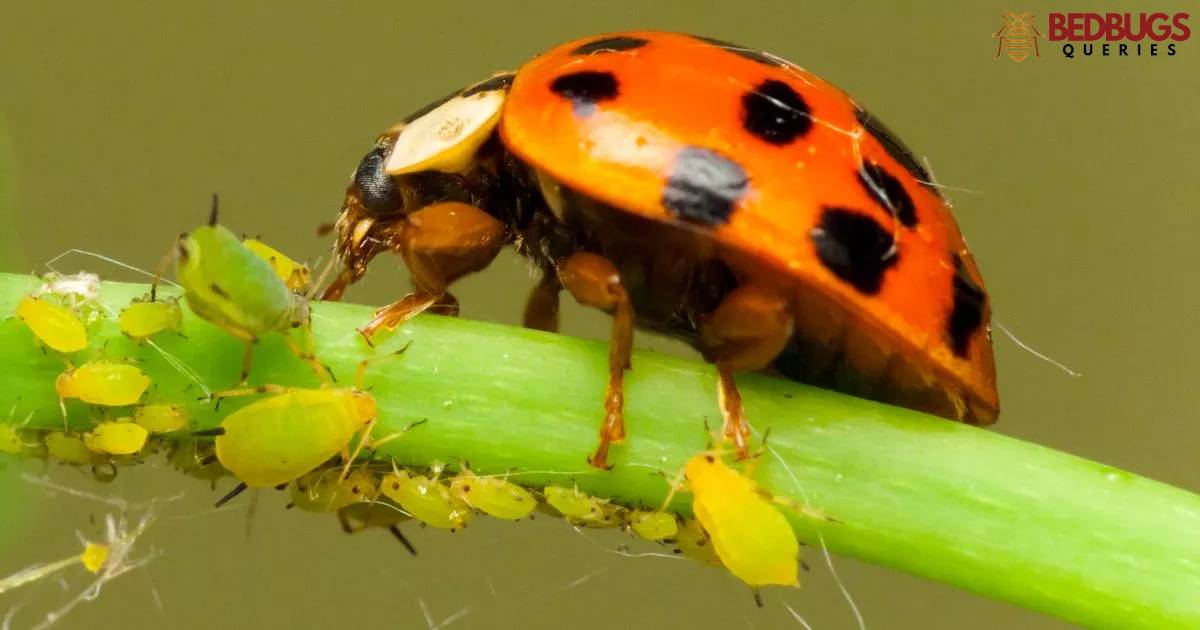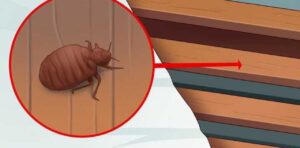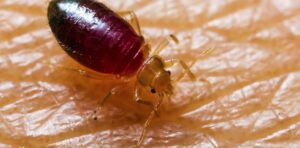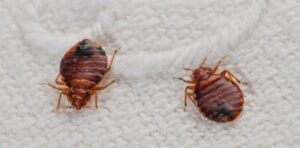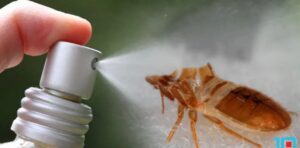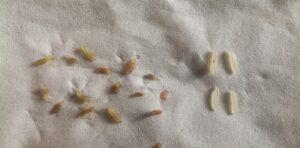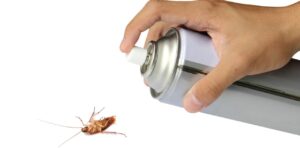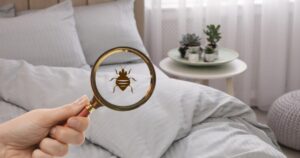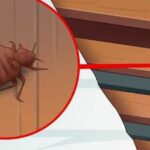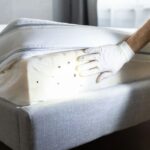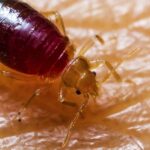Ladybugs are small beetles that are beneficial in gardens. They are known for eating aphids and other soft-bodied pests. Ladybugs do not typically eat bed bugs. Bed bugs are not part of their usual diet. Ladybugs primarily target plant-eating insects, not blood-feeding pests like bed bugs.
As pest-related concerns extend beyond the garden, one question frequently arises, Do ladybugs eat bed bugs? We embark on an intriguing journey into the world of ladybug predation, delving into the reality of whether these beloved insects can help combat the persistent presence of bed bugs in our homes.
As we explore this captivating topic, we’ll investigate the ladybug’s unique qualities, its natural predation abilities, and its potential role in addressing bed bug infestations. If you’ve ever wondered about the possibility of ladybugs serving as your secret weapon against bed bugs, read on to discover the truth behind this captivating entomological mystery.
Unraveling the Truth About Bed Bug Consumption
Bed bugs are notorious pests that can turn your peaceful night’s sleep into a nightmare. These tiny blood-sucking insects can infest your home, making it crucial to find effective ways to control and eliminate them. But did you know that nature has its own tiny warriors to combat these pests? Often thought of as cute and harmless insects, ladybugs could be your secret weapon in the fight against bed bugs.
Ladybugs vs. Bed Bugs
Ladybugs, or Coccinellidae as they are scientifically called, are often regarded as beneficial insects because of their voracious hunger for pests with soft bodies, like mealybugs, aphids, and scale insects. Those who are interested in natural pest management approaches are curious about their consumption of bed bugs.
Research on the diet of ladybugs indicates that while they primarily feed on soft-bodied insects, bed bugs are not typically a part of their preferred menu. It is common for ladybugs to prey on slower-moving and easier-to-catch insects, such as aphids. Bed bugs, on the other hand, are more challenging to catch and are less likely to be a regular food source for ladybugs.
Ladybugs as Natural Predators They Control Bed Bug Infestations?
While ladybugs may not be natural predators of bed bugs, they can still play a role in pest management. Known for their enormous appetites, ladybugs can contribute to the reduction of other pest populations in your garden or house, resulting in a more ecologically balanced environment.
By controlling other pest insects, ladybugs indirectly reduce the potential food sources for bed bugs, making it less likely for bed bug populations to thrive. The presence of ladybugs in your home can serve as a deterrent for bed bugs. These predatory insects emit chemical signals that can repel bed bugs and prevent them from establishing infestations.
A Close Look at Ladybug Diet
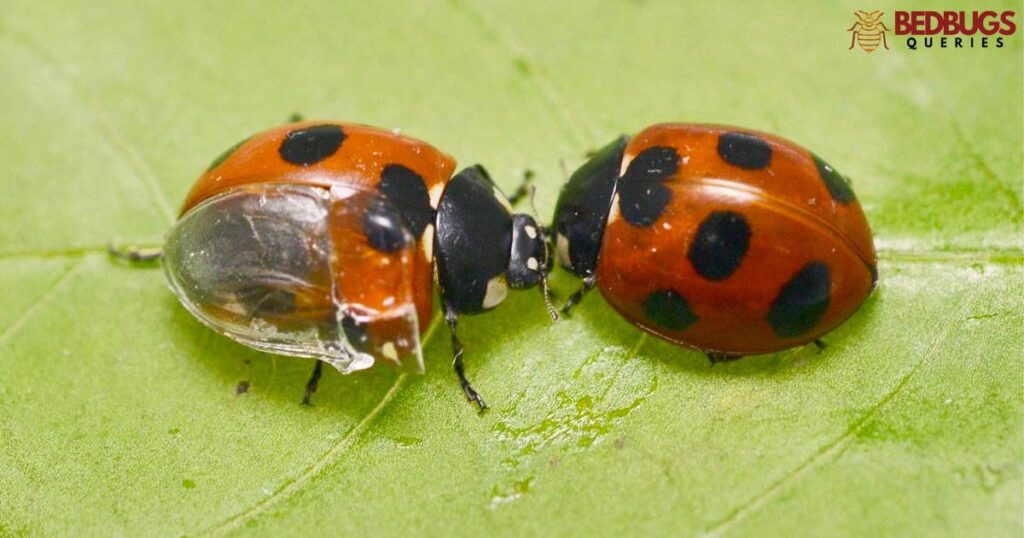
To understand ladybugs’ feeding habits better, let’s take a closer look at their diet:
- Ladybugs have a strong preference for aphids, which are small, soft-bodied insects that suck plant juices. These are a primary food source for ladybugs.
- Ladybugs also feed on scale insects, which are known for their immobile and waxy bodies. These insects can harm plants by draining their sap.
- Mealybugs are another favorite of ladybugs. They are soft-bodied pests that can damage a variety of plants.
- Adult ladybugs often consume pollen and nectar from flowers, providing them with essential nutrients.
- Ladybugs may occasionally consume other insects in the same size range as bed bugs, although this is not their primary source of food.
Feeding Habits of Ladybugs
Ladybugs are not picky eaters when it comes to the soft-bodied pests they target. They are less likely to consume bed bugs because of the differences in behavior and mobility between the two insects. Because they are adept at hiding in nooks and crannies and only come out at night to feast on blood, bed bugs are difficult for ladybugs to capture.
Ladybugs are not direct predators of bed bugs, they can indirectly contribute to pest control in your home by targeting other soft-bodied insects and creating a less favorable environment for bed bugs. Integrating ladybugs into your pest management strategy can be an eco-friendly and natural way to reduce the overall pest population in your home.
Exploring Ladybug Predation Reality for Bed Bugs
When it comes to controlling pests in the garden, ladybugs are often hailed as the heroes. These little, vibrant insects are a great help to farmers and gardeners because of their insatiable appetite for aphids and other garden pests.
Do ladybugs eat bed bugs? It’s a question that might come to mind if you’re dealing with a bed bug infestation in your home. Explore the intriguing world of ladybug predation and their potential as natural bed bug hunters.
| Aspect | Description | Benefits |
| Ladybug Predation | Ladybugs are natural predators known for their voracious appetite for soft-bodied insects, but bed bugs have a tougher exoskeleton. | Understanding the limitations of ladybugs in combating bed bugs. |
| Bed Bugs’ Elusiveness | Bed bugs are expert hiders, making them challenging targets for ladybugs. | Realizing the challenges ladybugs face when dealing with elusive bed bugs. |
| Laboratory Studies | Research has shown that ladybugs can feed on bed bugs in controlled environments. | Highlighting the results of scientific studies exploring ladybug predation. |
| Real-World Limitations | In practical settings, relying solely on ladybugs for bed bug control is not efficient. | Emphasizing the importance of comprehensive pest control strategies. |
| Professional Pest Control | Bed bug infestations often require the expertise of pest control professionals. | Advocating for the use of specialized pest control methods for effective bed bug removal. |
| Ladybugs in Gardening | Ladybugs remain valuable allies in gardens, preying on aphids and garden pests. | Acknowledging the role of ladybugs in ecological pest management. |
The Ladybug’s Secret Weapon
Ladybugs, also known as ladybirds or lady beetles, have a secret weapon in their quest for prey. They are equipped with strong mandibles and an insatiable appetite for soft-bodied insects. This makes them highly effective at devouring small pests like aphids, mealybugs, and scale insects. Ladybugs are, in fact, a popular choice for biological pest control in agricultural settings.
Bed bugs are a different kind of pest. They are not soft-bodied insects like aphids, which ladybugs readily consume. Bed bugs have a tough exoskeleton that poses a challenge to many natural predators. Despite this, ladybugs do have the potential to be part of the solution when it comes to bed bug infestations.
Ladybugs vs. Bed Bugs in Feeding Frenzy
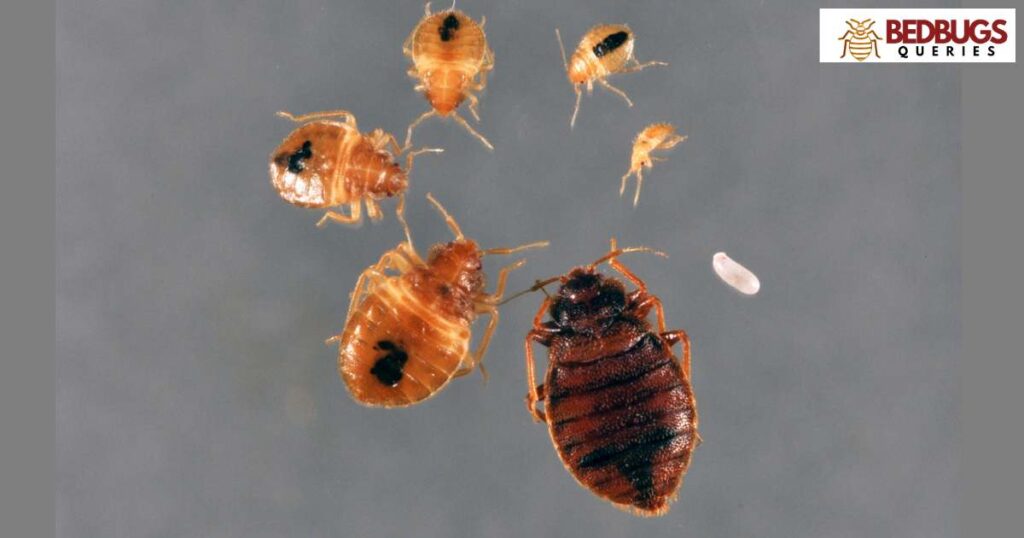
In a feeding frenzy scenario, ladybugs and bed bugs face off. The outcome is not as clear-cut as it is when ladybugs feast on aphids. Bed bugs are skilled at hiding in cracks and crevices, coming out primarily at night to feed on human blood. Their ability to hide and their resilient exoskeleton makes them less accessible to ladybugs.
It’s essential to note that while ladybugs may occasionally snack on bed bugs, they are not a reliable or efficient method for bed bug control. Bed bugs are elusive and tend to hide in places where ladybugs cannot easily reach them. Therefore, relying solely on ladybugs to eliminate a bed bug infestation is not a practical strategy.
Investigating Ladybug Appetite for Bed Bugs
Researchers have explored the potential of using ladybugs as a biological control method for bed bugs. Some studies suggest that ladybugs can indeed feed on bed bugs when given the opportunity. Usually, ladybugs come into bed bugs under particular conditions in controlled settings, like laboratories, for these kinds of investigations.
In a real-world setting, it’s challenging to rely on ladybugs to control bed bugs effectively. Bed bugs infest human living spaces, where ladybugs might not have easy access to their hiding spots. Bed bug infestations, like the Bed Bugs Smell When You Kill question suggests, require a targeted and comprehensive approach, which may include heat treatments, chemical treatments, and extensive inspections.
Conclusion
The thick exoskeletons and ability to conceal bed bugs limit ladybugs’ appetite for bed bugs, despite their remarkable predatory skills in gardening and agriculture. While ladybugs may nibble on bed bugs if given the chance, they are not a reliable solution for eliminating bed bug infestations in homes or other human living spaces.
For effective bed bug control, it’s best to consult with professional pest control experts who can provide a comprehensive strategy tailored to your specific situation. These experts can employ a range of techniques, from heat treatments to chemical solutions, to eradicate bed bugs and ensure a pest-free environment.

